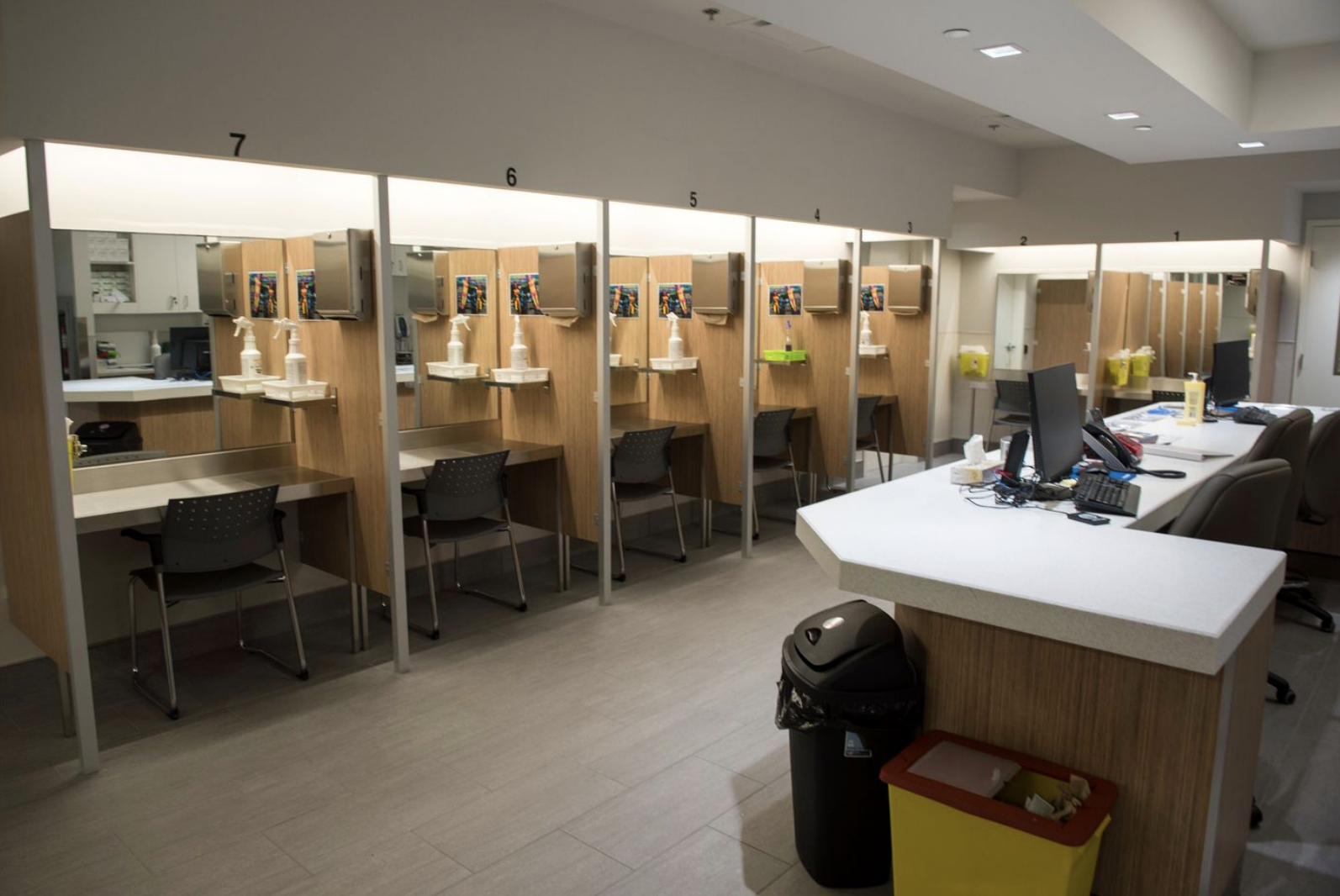Prince Edward Island, Canada, does not intend to appeal the veto of a proposed overdose prevention site (OPS), issued by Charlottetown councilmembers in September. CBC News reported that provincial authorities confirmed on October 19 there are no current plans to look for another location.
“We certainly did encourage the province to appeal the decision,” Angele DesRoches of local harm reduction organization P.E.E.R.S. Alliance, which would have operated the site, told CBC News. “The Department of Health is able to introduce public health services as they are needed, and those decisions shouldn’t be able to be held hostage by any other actor.”
Neither P.E.E.R.S. nor provincial representatives responded to Filter‘s request for comment.
OPS is the colloquial term for “urgent public health need sites,” which have an exemption from Canada’s Controlled Drugs and Substances Act so that people can consume state-banned drugs on the premises. OPS tend to be more pop-up, peer-led sites with fewer wraparound services but more flexibility compared to Canada’s supervised consumption sites, which tend to involve a lot more bureaucracy. However, the terms are sometimes used interchangeably and P.E.E.R.S., which receives funding from the Public Health Agency of Canada, refers to the Charlottetown site as an OPS.
The site was slated to open by summer 2023 with four safe consumption booths.
The Charlottetown site was slated to open by summer 2023 and include four safe consumption booths, in addition to drug-checking and other services. The safe consumption service itself would have been essentially limited to business hours, but a used syringe drop box as well as security personnel and cameras would have been 24/7. P.E.E.R.S. staff were to conduct walkabouts to ensure any syringes discarded in the area were cleaned up.
The OPS would not have included safe inhalation booths, though other non-injection methods of consumption like snorting could have been accommodated. In 2022, the province recorded 36 opioid-involved overdoses, including four deaths. A provincial health department survey from that year showed the most popular method of consumption is smoking, a trend reflected across the country as overdose deaths associated with smoking surpass those associated injecting.
In January, the city’s planning board first recommended a temporary variance to operate an OPS for one year at 15 Park Street. A previous location had already been rejected following pushback from the public. While campaigning, Prince Edward Island Premier Dennis King (Progressive Conservative Party) promised to relocate the site somewhere more suitable, as did all four legislative candidates.
The Charlottetown city council voted the OPS down 7-3 in September. “I’d say it’s probably one of the most toughest decisions I’ve made as a elected official,” Councilor Alanna Jankov, who voted “No,” stated to CBC.
The usual “syringe litter” myth had strong support. Some councilors suggested replacing a fixed site with a mobile van service to serve people throughout the province, but Charlottetown Mayor Phillip Brown told CBC that wouldn’t solve the issue.
“Now, some of the discussion tonight was more about the emotional part of it,” Brown said after the veto. “More about what residents think about it.”
Photograph of Montreal safe consumption site via United House of Representatives Document Repository




